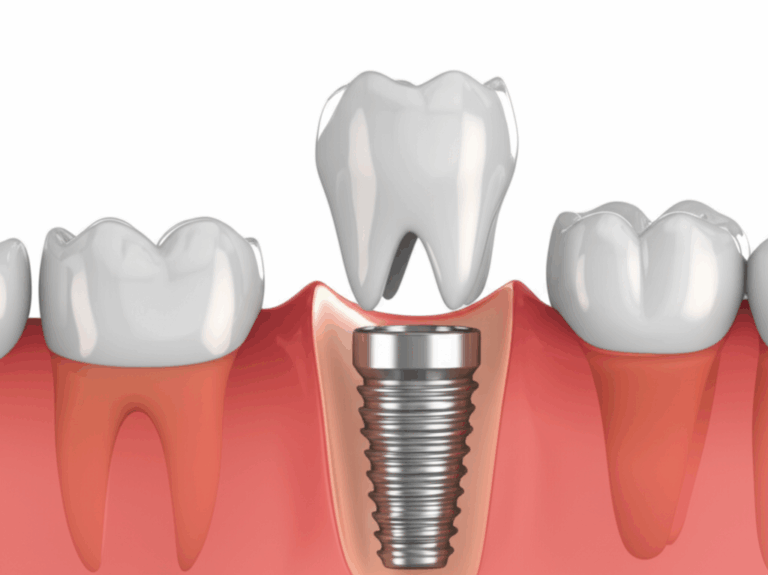
How Much Does a Dental Consultation Cost? Your Guide to Prices, Coverage & Savings
Dental visits can be a bit scary—not just for your teeth but for your wallet, too. If you’ve ever asked yourself, “How much is a consultation with a dentist?” you’re not alone. Dentists help keep your teeth healthy, but the price tag for a consultation can seem confusing. This article will tell you what to expect, how prices change, what you get for your money, and smart ways to save on your visit. We’ll also show why investing in your smile is always worth it!
Table of Contents
Introduction: Why Understanding Dental Consultation Costs Matters
Let me start with a story. A friend of mine once skipped the dentist for years, mostly because of worrying about the price. By the time he went for a checkup, his toothache had turned into a root canal—which cost way more than a simple visit would have.
Almost everyone worries about dental bills. Maybe you’re a parent taking your kid for their first dental check, or maybe you haven’t seen a dentist in a while. You might even wonder if a cleaning or X-ray costs extra. If so, this guide is for you.
Why read on?
- Find out exactly what you’ll pay at the dentist
- Learn tips for making your visit cheap, with or without insurance
- Understand what’s covered, and what to ask before your appointment
- See why a consultation can actually save you (and your teeth) a lot of money in the long run
Let’s jump in and help you get a healthy mouth—without putting too much stress on your budget.
How Much Does a Dental Consultation Really Cost?
Let’s answer the big question first: How much does it cost to see a dentist for a consultation? The price isn’t the same everywhere. It changes based on where you live, what you need, and who you’re seeing.
Typical Price Ranges in the U.S. (2024):
| Consultation Type | Average Cost (No Insurance) | What’s Included |
|---|---|---|
| Standard/New Patient Visit | $75 – $150 | Oral exam, dentist checks teeth & gums |
| New Patient Exam + X-rays | $100 – $250 | Exam, full mouth or bitewing X-rays |
| Emergency Consultation | $150 – $300 | Focused on problem tooth, sometimes 1 X-ray |
| Specialist Visit (e.g. Braces) | $100 – $350 | Special exam, like orthodontics or surgery |
| Virtual/Online Consultation | $30 – $100 | Quick check by computer, basic advice |
| Dental School/Clinic | $25 – $100 | Student exam, with dentist watching |
Source: American Dental Association, patient surveys
Why so much difference?
Some visits are just a quick look in your mouth. Others come with X-rays (which show things you can’t see) or extra checks. Specialist visits, like for braces or surgery, can cost more. Emergency visits often cost extra because you may need help right away.
Don’t forget:
- Lots of offices offer “new patient specials”—an exam, X-rays, and sometimes even a cleaning for a lower price.
- Community clinics and dental school clinics are cheaper, but might have longer waits.
What Are the Main Factors That Change the Price?
Have you noticed that prices jump from place to place and office to office? Let’s break down why.
1. Where You Live
- City vs. Small Town:
In a big city, dentist visits cost more. Rents and worker pay are higher, so you might pay $200 or more for a first visit with X-rays.
- State to State:
Some states have more dentists, which means more competition and lower prices. Other places have fewer dentists, making prices go up.
2. What Kind of Dentist?
- General Dentist:
Does regular check-ups and most dental work. Usually the lowest price.
- Specialist (like orthodontist, periodontist, oral surgeon):
These visits can cost more. For example, a braces check might be $150 or $200, but sometimes that fee goes toward treatment if you go ahead.
3. What’s Included in the Visit
- Just Looking:
Cheapest. This is where the dentist just checks your mouth with their eyes.
- Full Exam + X-rays:
Most useful for new patients. X-rays find things you can’t see.
- Special Checks:
Some offices also check for mouth cancer or other problems (really important for adults over 40).
4. Type of Clinic
- Private Practice:
Standard prices, sometimes higher.
- Chain Clinics:
Sometimes have deals to bring in new patients.
- Dental School Clinics:
Students (watched by a real dentist) give care for half price (or less).
- Community Health Centers:
Charge you based on your income.
5. How Urgent the Visit Is
Walk-in emergencies, weekend visits, or dental problems that need fast help can cost more, especially if you need X-rays or pain relief right away.
Pro tip:
Always ask beforehand what’s included in your consultation and if there are extra charges for X-rays or other things.
What’s Included in a Dental Consultation?
Ever left a dentist’s office and thought, “What did I just pay for?” You’re not alone. Knowing what’s covered helps you find hidden costs and ask smart questions.
Here’s What You Usually Get:
- Check-up:
The dentist looks at your teeth, gums, tongue, and inside your mouth. They look for holes, gum trouble, swollen gums, broken teeth, or signs of infection.
- X-rays:
These pictures help spot problems you and the dentist can’t see, like tiny holes between teeth or infections. Common types include bitewing, panoramic, or close-up X-rays.
- Cancer Check:
A quick look for odd bumps or patches in your mouth. Especially important for people over 40.
- Talk About What’s Next:
The dentist explains what they found. If you need work (like fillings, a crown and bridge lab, or braces), they go over your choices and prices.
- Estimate for More Work:
If you need more dental work, they’ll break down what it will cost.
Note:
Regular cleanings are usually not included unless it’s a “new patient” special. Always double-check!
Do Dental Insurance Plans Cover Consultations?
Dental insurance can be confusing. Here’s the simple version:
How Insurance Works
- Types:
PPO and HMO plans are most common.
- Key Words:
- Co-pay: The set amount you pay for each visit (say, $20 or $30).
- Deductible: The amount you pay each year before insurance covers things.
- Yearly Max: The most your insurance will pay each year.
Will Insurance Pay for My Consultation?
- Yes—Most of the time!
Most basic dental insurance covers check-ups and X-rays as “preventive” care. Sometimes they pay for the whole thing if you use a dentist in their network.
- Watch for Limits:
Some plans only cover two checkups a year, or may charge a small fee (co-pay), especially for specialists.
- Emergency Visits:
If it’s urgent or after hours, you might pay a bit more.
How to Check
- Call your insurance company or ask the dental office to look up your coverage.
- Bring your insurance card with you.
- Ask about your share of the bill before saying yes to extra treatment.
Pro tip:
Using a dentist in your insurance network saves you the most money!
How Can I Get an Affordable Dental Consultation Without Insurance?
A lot of people don’t have dental insurance. Here are your options:
1. Dental Schools
- Dental schools let students work on patients while a real dentist supervises.
- Cost: Usually half price or less. Sometimes just $25–$50 for a check-up with X-rays.
- Downside: Visits can take longer, and you might have to wait for an appointment.
2. Community or Public Health Clinics
- These places charge you based on how much money you make (“sliding scale”).
- Good for families or seniors on a tight budget.
- Look for a nearby community dental clinic.
3. Dental Savings Plans/Memberships
- Like a discount club for dental work.
- You pay a yearly fee for lower prices on checkups, cleanings, and even consults.
4. Payment Plans and Finance Options
- Ask if your dentist has payment plans.
- Many offices let you pay in monthly amounts—sometimes with no extra fees for a while.
5. Cash Discounts and Negotiation
- Many dentists offer a discount if you pay cash right away.
- Don’t be afraid to ask: “Do you have a cash discount or payment plans?”
6. Online and Virtual Consultations
- Some dentists offer video or online consults for $30–$100.
- Handy if you’re not sure if your toothache is a true emergency.
Remember, if you need dentures, you can check with a removable denture lab for choices. Some labs work closely with dentists to help you save even more.
Should I Pay for a Dental Consultation? Is It Worth It?
Let’s be honest: No one wants to spend money just for a dentist to look in their mouth. Here’s why it’s a smart move:
Early Detection Saves Money
Catching a small cavity or early gum trouble is easy and cheap. Ignore it and you might need a root canal or even lose a tooth—and the bills get big fast.
Example:
A $120 check and filling now is way cheaper than a $1,200 root canal and crown later. The ADA (American Dental Association) says regular check-ups really do save money down the line.
Build a Trusting Relationship
Seeing the same dentist helps you feel comfortable and catch problems early. Kids, adults, even seniors need this.
Peace of Mind—And Second Opinions
Worried if you need braces, implants, or veneers? A consultation gives you answers and helps you decide what to do next.
How to Make Your Consultation Count
You walk in. They greet you. What should you do? Get the most for your money by being ready.
Bring Your Questions
- “What’s making my tooth hurt?”
- “Is this chipped tooth a big problem?”
- “What exactly do I need done—and why?”
Be Upfront About Your Health
- Share your medical history.
- Tell your dentist about any medicine or allergies you have.
Ask About Next Steps and Price
- “What are my choices?”
- “How much will each thing cost?”
- “Are there payment plans or discounts?”
Don’t Forget Basic Care Tips
- Ask about brushing, flossing, and other ways to keep your teeth healthy at home.
- Want to improve your smile? Ask about services like a dental ceramics lab or veneers.
Pro tip:
Take notes or ask for a printed out plan. Don’t leave the office confused!
Real-Life Stories: Saving on the Dentist
Here’s a story that might sound familiar.
Jenna, a college student, chipped a tooth playing soccer. She worried about the cost, but found a dental school clinic. Her consultation and X-rays? Just $40.
Another friend, Mr. Chen, always stressed about paying lots for his annual check. He signed up for a dental savings plan, paid $90 for his consultation (instead of $200), and got a deal on cleanings and his new night guard.
A third, Maria, lost her dental insurance. She found a local clinic with sliding scale fees. Her visit cost just $55—saving her over $100.
The lesson: You don’t always have to pay a lot for good dental care!
Dental Consultation Costs—Frequently Asked Questions
Q: How often should I see a dentist for a consultation or check-up?
A: Two times a year is best for most people. If you have health problems like diabetes or gum trouble, you might need to go more often.
Q: Does Medicaid or Medicare pay for dental consultations?
A: Medicaid sometimes does, especially for kids. Medicare almost never does, unless it’s part of a hospital stay. Always check your plan.
Q: Will my first dental consultation fix my problem?
A: Sometimes, yes; sometimes, no. A consultation finds out what’s wrong and makes a plan. Some things can get fixed that day, but some need more visits.
Q: Is online or video dental care as good as in-person?
A: For advice and quick checks, yes. For treatment or a full exam, in-person is better.
Key Takeaways to Remember
- Dental consultation costs usually run $75 to $300+, depending on what you need and where you go.
- Insurance can lower your cost—a lot, especially if you use a dentist in your plan network.
- Don’t have insurance? Dental schools, community clinics, savings plans, and payment options can make your visit cheap.
- Always ask before you go: What’s included? Are X-rays extra? Are there other fees?
- Early check-ups catch problems before they explode—saving pain and lots of money later.
- Always look for deals, cash discounts, and new patient specials.
- Taking care of your teeth is a smart investment in your whole-body health.
A healthy mouth means a healthier life. Now that you know the basics and how to save, making a dental appointment should be a lot less scary for your wallet!








